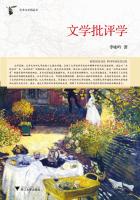A/LL throughout the seventeenth century, there was a strong reaction in Great Britain against Aristotle, scholasticism, and formal logic generally.College youths everywhere were protesting against the syllogism, moods and figures, and reduction.Unfortunately, logic -- in Glasgow, Edinburgh, and Saint Andrews, -- came in the second year of the college course; and youths of fifteen or sixteen groaned under the yoke, and longed for some thing more fascinating and less arduous.The professor who did most to gratify this taste was Jardine, professor of logic and rhetoric in the university of Glasgow.
For several sessions after his appointment, he followed the established method, giving the usual course of logic and metaphysics, though he says, " every day more and more convinced me that something was wrong in the system of instruction; that the subjects on which I lectured were not adapted to the age, the capacity, and the previous attainments of my pupils." "To require the regular attendance of very young men two hours every day during a session of six or seven months, on lectures which they could not understand, and in which, of course, they could take no interest, had a direct tendency to produce habits of negligence, indifference, and inattention, which, it is well known, frequently terminate in a positive aversion to study of every description.The change from the animated perusal of the Greek and Roman classics to the unfathomable depths of logic and metaphysics was far too abrupt." The fault evidently lay, not in having logic as a required branch of study, and not in requiring it to be thoroughly learned, but in bringing it in too early in the course, and in not having in the second year a course on English literature and composition.Jardine did give a course of formal logic, but it was very much pressed into a corner.His text-book, "Quaedam ex Logicae Compendiis Selecta," is a meagre abridgment carrying the student among the bones of the study, without clothing them with life, and fitted to leave the impression that the branch is as useless as it is dry.
He enlarged with much deeper interest on the human mind generally, and the various faculties: on language, on taste, on beauty, on criticism, -- showing no originality or grasp of intellect, but furnishing a course of great utility to young students, and felt to be interesting and stimulating.
His views were expounded in his " Outlines of Philosophical Education, illustrated by the Method of Teaching the Logic Class in the University of Glasgow." The work is still worthy of being looked into by all who would study what the Germans call " Pedagogic." He points out the advantages of the lecturing system." While listening to a discourse delivered with some degree of animation, the mind of the student is necessarily more awakened, and feels a more powerful demand made upon its energies, than when perusing a printed volume." "In a class-room, a sympathetic feeling pervades the whole; the glow of zeal and an expression of curiosity {317} are perceived in almost every countenance; all the faculties of the mind are exerted; and powers unused before are awakened into life and activity."But he insists that the lecturing be accompanied with regular examinations.The teacher " will not examine the class in any stated order, but occasionally call upon the same individual at two successive hours, or even twice in one hour; and, as a check upon open negligence, lie may sometimes select such as appear the least attentive, and thereby expose their idleness to their fellow-students." But the most important part of his work is that in which he explains his views as to themes for composition, recommending that some be presented as fitted to enable the student to form clear and accurate notions and to express his thoughts, others to give a power of analysis and classification, a third to exercise and strengthen the reasoning faculties, and a fourth to encourage processes of investigation.Under this fourth head, he suggests as a theme, "There was fine linen in Egypt in the time of Moses,"and would have the student thence determine the state of Egypt as to government, science, and art.
Professor Jardine was born at Wandal, in the upper ward of Lanarkshire, in 1742.He was educated at Glasgow College, and became a licentiate of the Church of Scotland.In 1771, be became tutor to two sons of Baron Mure, and travelled with them in France.On his return in 1773, he was an unsuccessful candidate for the chair of humanity in Glasgow;but, in 1774, he was appointed assistant and successor to Mr.Clow, professor or logic and rhetoric.In 1824, -- he retired from the teaching of logic, and died in 1827.His pupils acknowledged their deep obligations to him in interesting them in study and imparting to them a power of writing the English language.But certainly he did not advance the science of logic, or help to promote the study of it among young men.Francis Jeffrey, who was fond of expressing his gratitude to him, may be taken as the representative pupil produced by him, capable of thinking and expressing himself clearly and ably on every subject, but not diving into the depths of any subject.It required all the ability and energy of Sir William Hamilton to bring back Scottish youths to the scientific study of logic.















